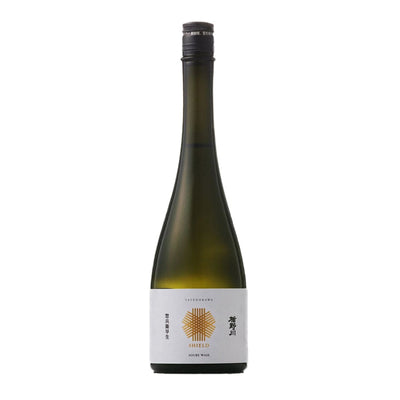Types of Sake Rice: Yamada Nishiki and Its Characteristics
The main ingredient in sake is rice. Steamed rice is added to make koji (rice malt) and yeast starter, which promotes alcohol fermentation. Steamed rice is also added when the koji and the yeast starter are combined and fermented to make the unrefined sake, so rice always plays a role in the sake brewing process. It is no exaggeration to say that the type of rice used in sake brewing determines the taste of the sake, so rice is very important in sake brewing.
As with grapes in wine, different varieties of rice impart different characteristics in sake, and wouldn't it be interesting to get know sake by the variety of sake rice.

King of Sake Rice
There are about 100 varieties of rice suitable for sake brewing in Japan, and Yamada-Nishiki is considered the "king of sake rice". Yamada-Nishiki has all the characteristics of rice suitable for sake brewing, including a large starchy core (shinpaku), large grains allowing to withstand high rice polishing rates, low fat and protein content, and easy water absorption.
Yamada-Nishiki was born in Hyogo Prefecture, and one of the reasons for its top production is that the climate and soil of Hyogo Prefecture are most suitable for it. Yamada-Nishiki from the so called Toku A districts (cities of Miki and Kato in the western part of Mt. Rokko) in Hyogo Prefecture is considered the best.
Sake made with Yamada-Nishiki is said to have an aromatic, delicate, and clean taste. Another important feature of Yamada-Nishiki is that it can be used to make high-quality koji, so even when the sake is made dry with a higher alcohol content, the flavor and sweetness of the rice remain.

Yamada-nishiki (left) vs. Regular rice (right)
Recommended Yamada-Nishiki Sake
To experience the superiority of Yamada-Nishiki is, of course, try sake made with it.
Rihaku Brewery especially focuses of the quality of water and rice. The water used for sake comes from a deep well near the brewery; it is soft water that melts in to the palate, drawing the various flavors with it. Their Junmai Daiginjo is no exception when it comes to quality of rice and water.
Rihaku Junmai Daiginjo is made from Hyogo-grown Yamadanishki polished up to 45%. Fermented in a low temperature for a long period, it has a quiet fragrance for Junmai Daiginjo but the flavour is clean and soft, with a little bit of crisp. A sake that shows the best qualities of Yamadanishki!























Leave a comment